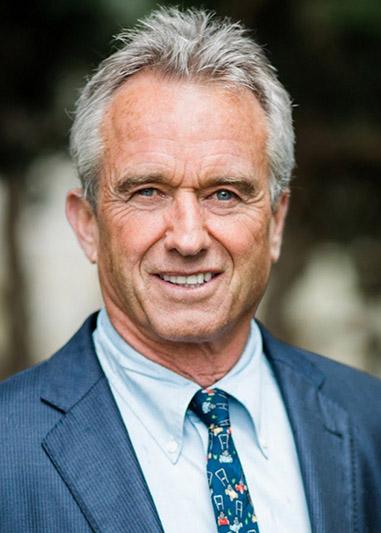In a move that has sparked widespread discussion and raised questions about the future direction of U.S. vaccine policy, Robert F. Kennedy Jr. has dismissed the entire vaccine advisory panel of the Centers for Disease Control and Prevention (CDC). The decision, announced earlier this week, marks a significant shake-up within the federal agency responsible for public health guidance on immunizations. Critics and supporters alike are reacting to the unprecedented action, which comes amid ongoing debates over vaccine safety and regulatory oversight. This article explores the context and implications of Kennedy’s decision to fire the CDC’s vaccine advisory panel.
RFK Jr. Overhauls CDC Vaccine Advisory Panel Amid Controversy
Robert F. Kennedy Jr., in a decisive and controversial move, has dismissed the entire vaccine advisory panel at the Centers for Disease Control and Prevention (CDC). This drastic overhaul comes amid rising concerns over the panel’s transparency, decision-making processes, and conflict of interest allegations. RFK Jr. aims to rebuild the advisory group with experts who he asserts will prioritize public health free from industry influence. The shake-up marks a significant shift in how vaccine policies may be shaped in the coming months.
The outgoing panel, which has long been tasked with evaluating vaccine safety and efficacy, faced criticism both from within the CDC and external watchdogs. Advocates supporting RFK Jr.’s actions cite:
- Alleged ties between panel members and pharmaceutical companies.
- Perceived underreporting of vaccine side effects in official recommendations.
- Lack of adequate representation from independent scientists and public health advocates.
The replacement process will prioritize diversity in expertise and independent backgrounds, with a focus on restoring public trust. Below is a snapshot comparison of the old versus new panel priorities, as outlined by RFK Jr.’s office:
| Aspect | Former Panel Focus | New Panel Focus |
|---|---|---|
| Transparency | Limited disclosures | Full public reporting |
| Industry Influence | Existing ties | Zero tolerance |
| Scientific Rigor | Traditional protocols | Expanded independent review |
| Public Engagement | Minimal input | Inclusive forums |
Implications of the Advisory Panel Shakeup for Public Health Policy
The abrupt dismissal of the CDC’s vaccine advisory panel marks a significant crossroads for public health policy in the United States. This move poses immediate challenges to the continuity of expert guidance on vaccine safety and efficacy, potentially eroding the foundation of evidence-based recommendations that protect millions. Without a functioning advisory panel, the CDC faces delays in vaccine approval processes and weakened mechanisms for addressing vaccine hesitancy, which could hinder efforts to control preventable diseases.
Key consequences to watch for include:
- Disruption in the review and endorsement of new vaccines and booster shots
- Potential politicization of vaccine policy decisions, reducing public trust
- Gaps in oversight that may allow misinformation to gain ground
- Complications in coordinating national vaccination campaigns
| Impact Area | Short-term Effect | Long-term Risk |
|---|---|---|
| Vaccine Approval | Process delays | Slower innovation |
| Public Confidence | Increased skepticism | Reduced vaccination rates |
| Policy Transparency | Limited expert input | Potential bias in decision-making |
Expert Reactions and Concerns Over Changes at the CDC Vaccine Board
Health experts and public officials have voiced strong concerns following the abrupt dismissal of the CDC’s vaccine advisory panel. Many see the move as a potential setback to transparent and science-based public health guidance, emphasizing that the advisory board’s independence is crucial in maintaining public trust. The unexpected decision has raised alarms about possible political interference in vaccine policies amid ongoing efforts to combat infectious diseases.
Critics argue that without the seasoned expertise and rigorous review historically provided by the panel, future vaccine recommendations could lack credibility. Some specialists fear that sidelining consensus-driven processes may hinder effective responses to emerging health threats.
- Dr. Emily Hart: “This undermines the integrity of vaccine oversight.”
- Senator Mark Lewis: “Public confidence depends on objective, expert input.”
- Immunology Researchers’ Consortium: “A transparent advisory process is non-negotiable for public safety.”
Recommendations for Restoring Trust and Ensuring Transparency in Vaccine Guidance
To rebuild public confidence, it is essential that vaccine advisory committees implement clear conflict-of-interest policies and ensure that every expert involved has transparency about their affiliations. Equally important is the adoption of open-access data platforms where clinical trial results and adverse event reports are easily accessible to healthcare professionals and the public alike. This level of openness not only discourages misinformation but also empowers individuals to make informed decisions based on complete and unfiltered evidence.
Furthermore, regular public briefings led by independent health experts, free from political and corporate influence, should become a standard part of vaccine communication strategies. Engagement with community organizations and patient advocacy groups can also facilitate dialogue and address concerns effectively. Below is a summary of key actionable measures that can foster a culture of trust and transparency:
| Action | Purpose |
|---|---|
| Conflict-of-Interest Declarations | Ensure unbiased expert input |
| Open Data Access | Provide transparency on vaccine safety and efficacy |
| Independent Public Briefings | Restore credibility through impartial communication |
| Community Engagement | Address local concerns and build grassroots trust |
Concluding Remarks
In a move that has sent ripples through the public health community, RFK Jr.’s decision to dismantle the entire CDC vaccine advisory panel marks a significant turning point in the agency’s vaccine oversight. As debates around vaccine safety and policy continue to intensify, the implications of this controversial action remain closely watched by experts, policymakers, and the general public alike. The coming weeks will be critical in understanding how this decision will affect vaccine recommendations and public confidence moving forward.




